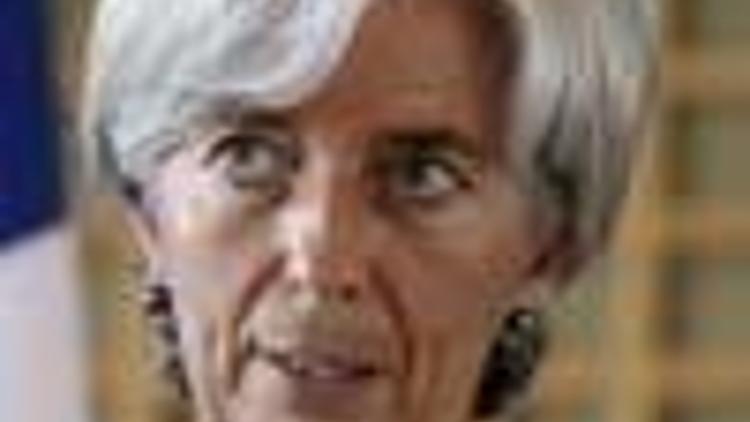France to lend €10.5 bln to SocGen, BNP and other top four banks
Güncelleme Tarihi:

The French state will lend 10.5 billion euros ($14.12 billion) to the country's top six banks before year-end to prop up their capital reserves, Economy Minister Christine Lagarde said late on Monday.
President Nicolas Sarkozy last week said the government had earmarked 360 billion euros ($483.8 billion) as part of an international effort to help banks survive the worst financial crisis since the Great Depression eight decades years ago. �
"The money will come from a 40 billion euro ($53.7 billion) recapitalization fund that was part of that plan," Lagarde told at a news conference in
The state agreed to subscribe to subordinated debt issued by Credit Agricole for 3 billion euros ($4 billion); BNP Paribas for 2.55 billion euros ($3.4 billion); Societe Generale for 1.7 billion euros ($2.2 billion), and for 1.2 billion euros ($1.61 billion) by Credit Mutuel.
It will also lend 1.1 billion euros ($1.4 billion )to Caisse d'Epargne and 950 million euros ($1.2 billion) to merger partner Banque Populaire. The amounts are in line with the size of the banks.
SUBORDINATED DEBT
The government will subscribe to subordinated debt issued by the country's six biggest banks, without acquiring voting rights, Lagarde said, adding in exchange, the banks will have to boost lending to companies and households.
"The subscription to the debt issued will be done through the state investment vehicle" for the recapitalization of the banks, she said.
Lagarde said the French state was ready to lend the same amount to banks again in 2009.
"The state is not giving a gift to the banks," Lagarde said. "The pricing of these securities will be based on available market references. They will generate substantial revenue for the state."
The banks "must commit to increasing loans to the economy and guarantee financing adapted to the needs of households, companies, and local government."
INTEREST RATES
The loans come with conditions including lending targets for retail and business customers and local authorities.
Credits have dried up during the financial crisis, making the banking problems worse and spilling over to the real economy.
Banks will pay an interest rate of more than 400 basis points over the risk-free rate in an effort to make sure the deal does not appear as a giveaway to bankers while French people struggle with rising unemployment and a slowing economy.
"These liquidity facilities put together will allow banks to continue financing the economy," the French Banking Federation said in a statement.
Businesses and households have been hurt by the credit crisis as banks, facing dried-up money markets themselves, could not award the level of funds required for investments or mortgages.
UNDER PRESSURE
The banks will issue junior debt to the French state.
The government has said repeatedly that the French banking system was solid, and Sarkozy has pledged that not a single French citizen will lose a single euro due to any liquidity problems at banks in
But savings bank Caisse d'Epargne dismissed its top management on Sunday after a small group of traders caused 600 million in losses on share derivatives earlier this month.
Shares in Societe Generale fell 10 percent on Monday on renewed speculation of a capital increase. The government has already used 1 billion euros from the fund to support Franco-Belgian bank Dexia.
"The Bank of France would like to clarify that all the banking groups concerned currently present very satisfactory levels of capital bases," it said.

